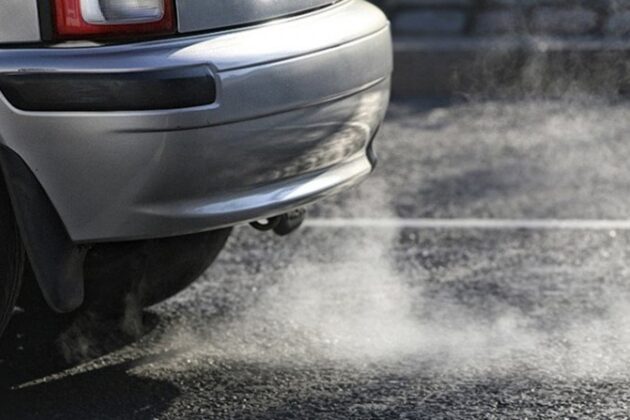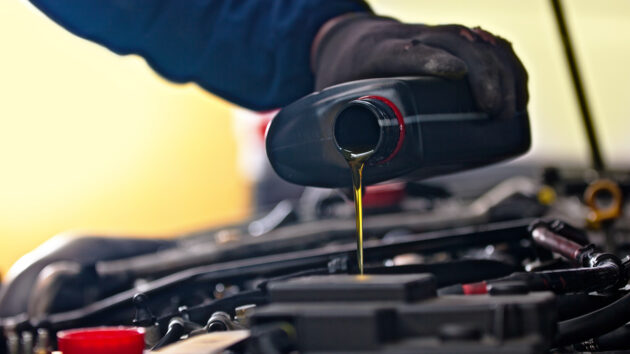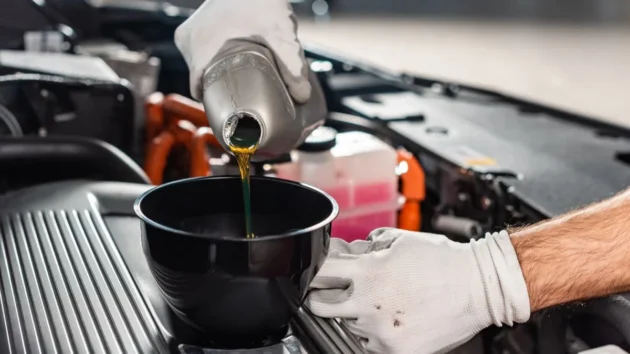An engine is a nexus of big and small components, such as screws and rotors, constantly moving and rubbing each other. The constant contact between the components creates friction. Engine oil lubricates these moving parts and prevents them from overheating. In fact, from massive cruise ships to domestic cars, all types of engine oils need their components well-oiled to function well. You also need to understand essential car maintenance measure-the timely oil change schedule.
A car owner must look after replacing the vehicle’s oil at correct intervals. This ensures the car’s longevity and better performance. Timely oil replacement accomplishes its task. Replace the old oil with a new one. So how do you sense if it’s high time to refresh the oil? If not, then we’ve got you covered!
Here we’ve listed ten common symptoms which show that your car is screaming for an oil change service-
Here we can see the difference. The newly replaced oil has a bright amber colour. But overdue oil has residue particles in the engine, and it’s almost black. place your oil dipstick and look at the color of the oil on it. Make a habit of examining your oil quality every week.
Tapping or ticking noises
Engine oil gets old after a while—overdue oil build-up residue makes it thicker and dirtier. Thick oil makes it difficult for the oil to lubricate the parts. Hence, your engine will make a various screeching and tapping noises. That is why it’s recommended to change or tune-up your oil after every 5,000 miles.

Exhaust smoke
Seeing little smoke or vapour emitting from your vehicle’s exhaust is commonplace in a cold environment. However, if you start seeing grey or blue smoke emitting from your exhaust, then you might need to get the oil replaced.
poor fuel efficiency
Underestimating the oil replacement maintenance can lead to poor fuel economy. You will feel that your car mileage is reduced from what it used to be. This rings the bell for oil replacement, as the oil has become thick and cannot lubricate moving parts to work smoothly.
Overheating
The constant rubbing between the components will generate friction, and it will cause the engine to overheat. If you’re experiencing the same problem, change your oil with the new one.

Falling oil level
Tuning off your oil occasionally can increase the period between oil changes. However, if your notice your oil level falls constantly and quickly, there’s some problem in your oil system.
Poor ride quality
The increased friction in your engine when your old engine is overdue for replacement can also affect your ride quality. For any such problems, visit actonservicecentre.co.uk
You may notice an old smell inside the car
If you notice an old smell inside your car, it can mainly be because of an oil leak. Also, experiencing exhaust fumes or gas smell in your vehicle indicates your vehicle may be overheating. It will help if you go to a nearby mechanic immediately.

Distance covered
Your car needs an oil change after running 5000 to 10000 kilometres, depending on the condition and age of your vehicle. Always check the total distance you have covered, and if it’s overdue, you know what to do.
Always keep the engine light in check
If you have noticed the “check engine” light on your dashboard, there can be several mechanical reasons behind it. First, your car doesn’t have an oil change light; second, your oil change maintenance is overdue and extreme.
Why do you need to replace your engine oil in time?

It saves you from engine damage.
Oil lubricates the engine’s components and prevents friction. Timely oil change increases the life span of your engine and prevents potential damage. Poor lubrication can cause friction and make your engine overheat.
It prevents wear and tear
The engine’s moving parts, such as valves, crankshaft, and piston, are protected by the engine oil. It lubricates the parts and reduces the potential for tearing.
Improves fuel efficiency
A well-oiled engine reduces excessive fuel consumption and leads to better fuel efficiency. This also saves your vehicle from potential damage over the entire duration of owning the car.
How does engine oil protects the engine?

Your car’s engine is the nexus of various components pushing each other to cause movement. The continuous contact between the components can cause friction. Engine oil lubricates the parts which reduce friction and prevent the engine from overheating.
Why is the choice of engine oil important?
Engine oil is the life-giving fluid of your car. If the wrong oil is used, the engine will be vulnerable to wear and corrosion.
The oil needs to be replaced every 5000 to 10,000 kilometers. Timely oil maintenance will keep your engine in good health and build less residue.
How should I dispose of old oil?
Used oil can be dangerous to the environment if poured down the drains directly. In fact, you can also be fined to do this. Take your oil to a nearby official recycling bank.
Why is the engine oil changes its colour?
You might have noticed your engine oil turned black or grey. There are several factors behind it, such as residue build-up, the heat of the engine, and the continuous combustion process.
Closing thoughts
I hope you have understood the need and importance of determining your oil condition. We would love to hear from you and for more of such informative content, keep your eyes peeled. Till then, have a safe drive!
